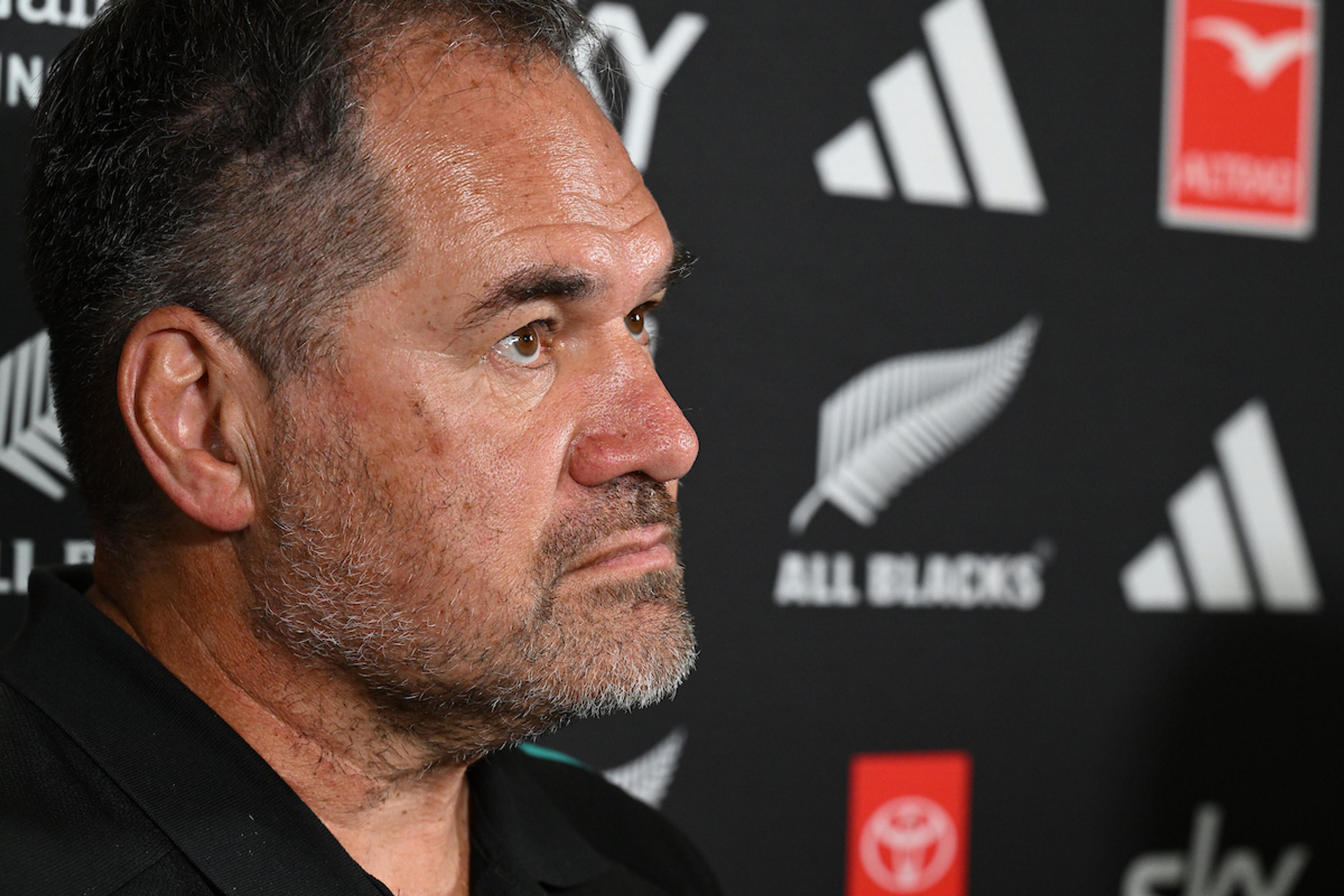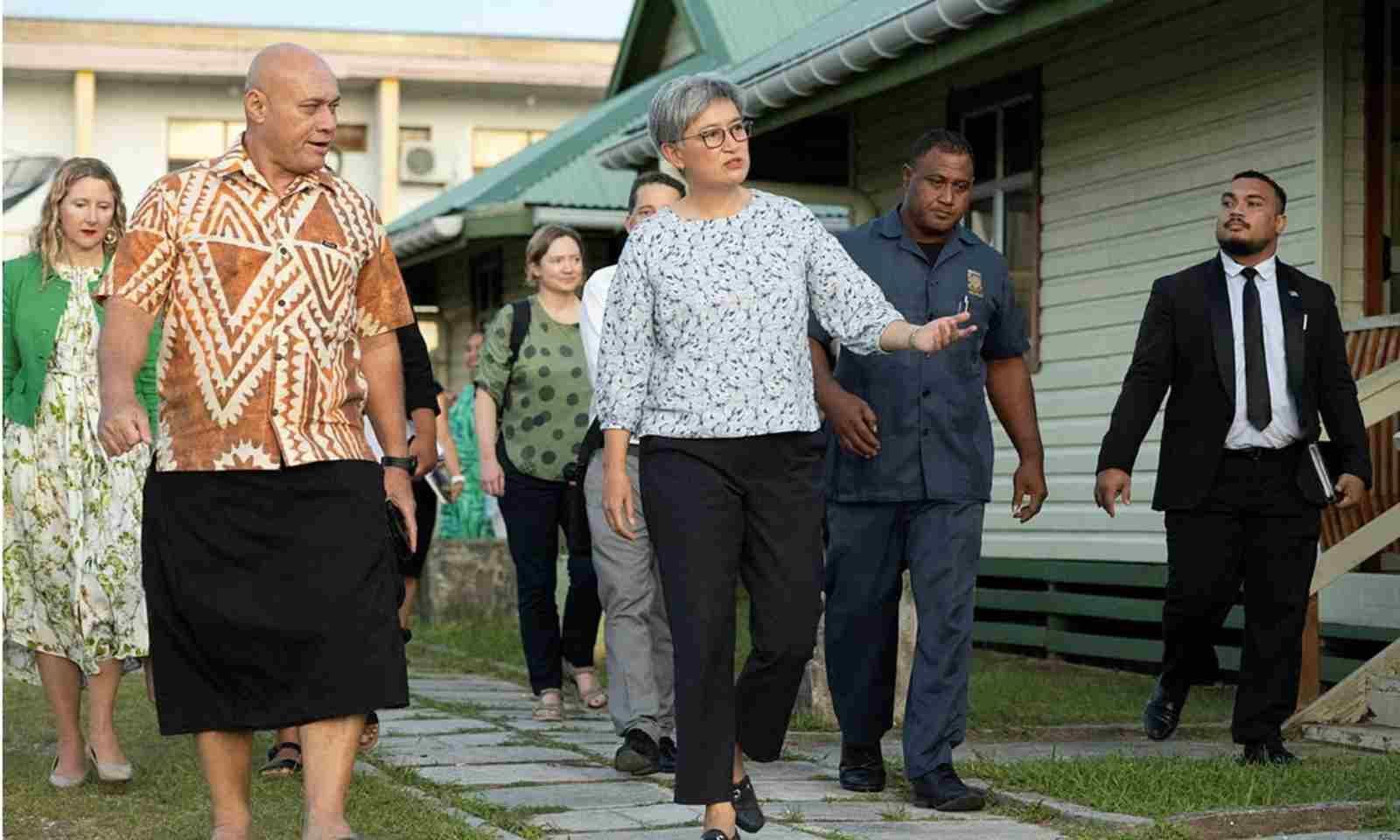

The #StandUpForThePacific Campaign calls for Pacific people to pledge their commitment and stand up for the region in the face of its biggest threat: Climate change.
Photo/350.org/Navneet Narayan
Australia's COP31 bid at risk: Climate debate intensifies ahead of federal election
With Pacific nations prioritising climate action amid rising sea levels and increasing geopolitical tensions, Canberra calls for stronger initiatives as opposition leaders focus on domestic economic concerns.


‘Without fear or favour’: Barbara Dreaver chronicles 30 years on the Pacific frontline

Dave Rennie becomes first All Blacks coach of Pacific heritage


Tongan family in Abu Dhabi recount explosions as Middle East conflict escalates

‘Without fear or favour’: Barbara Dreaver chronicles 30 years on the Pacific frontline

Dave Rennie becomes first All Blacks coach of Pacific heritage

As the federal election approaches, the discussion around Australia's environmental responsibilities, particularly in the Pacific region, has intensified.
Climate change is a critical issue for these island nations, which are dealing with rising sea levels that threaten their very existence.
Australians will vote for members of the 48th Parliament on or before 17 May 2025. In this election, all 150 seats in the House of Representatives and 40 of the 76 Senate seats will be up for election.
Australia has officially bid to co-host COP31 in 2026 in partnership with the Pacific. If successful, Canberra will need to provide the venue, equipment and services for all aspects of the COP31 in 2026 as the COP Presidency.
The risk to Australia's bid to host the climate summit is tied to the tense political atmosphere.
Pacific nations insist that addressing climate change is their top concern.
In response, Australia's Climate Change Minister, Chris Bowen, has criticised the opposition for not taking climate issues seriously.
The government’s plan to explore nuclear energy has raised alarms among Pacific countries, who have historical reasons to oppose nuclear technology following damaging tests in the region.
This has put Australia's relationship with its Pacific neighbours at risk, especially as tensions with China grow.

Climate change is a top priority for Pacific nations, recognised as a significant threat to their security, livelihoods, and well-being, and Pacific leaders are actively seeking global support to address its impacts. Photo/Supplied
Australia's Foreign Minister, Senator Penny Wong, warns that failing to take strong climate action could allow China to increase its influence in the Pacific.
The debate also comes as Treasurer Jim Chalmers unveiled the federal budget in Canberra, highlighting that Australia is maintaining its A$2 billion (NZ$2.2 billion) support for the Pacific.
But many advocates believe that the budget lacks sufficient new investments to tackle climate change.
Stephen Bartos, a Professor of Economics at the University of Canberra, says the budget briefly mentions the risks of climate change but doesn't quantify its potential impact, which could lead to more severe issues down the road.
The Climate Council has echoed this concern, stating that Australians are already facing significant costs due to extreme weather worsened by climate change, which is expected to cost taxpayers around A$1.2 billion (NZ$1.3b) following a recent cyclone.
Turkey is also competing to host the COP31 summit, and previous meetings have ended without an agreement. Turkey's ongoing interest in hosting has delayed the final decision until June of this year.

Australia's Foreign Minister Senator Penny Wong, center, visited Tuvalu last May. Photo/DFAT
Bowen says that even if Australia wins the bid, several decisions about logistics and policies will need to be made.
Pacific Island nations are urging Australia to take more concrete steps, such as increasing funding for climate initiatives and transitioning away from fossil fuels.
Tuvalu, a low-lying atoll, is one of those on the frontlines of the climate crisis, facing threats from rising waters and stronger storms. The government warns that this could lead to the displacement of communities and the loss of territory.
Australia claims it is responding with programmes aimed at helping communities adapt to climate change and providing financial support.
But Ted O’Brien, the coalition’s climate change spokesman, has not committed to the co-hosting bid.
“Our priority is to reduce costs for everyday Australian households and businesses. That’s what matters most. Labor’s priority is hosting a global climate change summit.”

About 300 Pacific delegates, including Pacific Islands Forum officials, attended COP29 in Azerbaijan last year. Photo/SPREP.
Labor argues that co-hosting the climate summit with Pacific nations would show Australia's dedication to addressing climate change and maintaining good relationships with those island states.
It also countered claims from the opposition that they do not prioritise climate action.
Labor believes Australia must lead efforts in reducing energy prices and emissions while supporting its neighbours.
“We are bidding to host COP31 in partnership with the Pacific because it is in Australia’s national interest to bring down energy bills and emissions with reliable renewables while safeguarding our international relationships,” Bowen told AAP.
“It’s bold from Ted O’Brien, who has spent more time overseas studying expensive international nuclear systems than listening to our experts on Australia’s unique solar and wind opportunities.”
The Australian federal budget 2025/2026 was passed in the House on Wednesday.